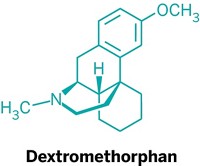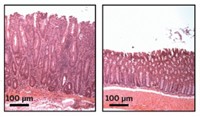Advertisement
Grab your lab coat. Let's get started
Welcome!
Welcome!
Create an account below to get 6 C&EN articles per month, receive newsletters and more - all free.
It seems this is your first time logging in online. Please enter the following information to continue.
As an ACS member you automatically get access to this site. All we need is few more details to create your reading experience.
Not you? Sign in with a different account.
Not you? Sign in with a different account.
ERROR 1
ERROR 1
ERROR 2
ERROR 2
ERROR 2
ERROR 2
ERROR 2
Password and Confirm password must match.
If you have an ACS member number, please enter it here so we can link this account to your membership. (optional)
ERROR 2
ACS values your privacy. By submitting your information, you are gaining access to C&EN and subscribing to our weekly newsletter. We use the information you provide to make your reading experience better, and we will never sell your data to third party members.
Biological Chemistry
D For Immune Defense
Vitamin D is a crucial factor in activating the human immune system
by Carmen Drahl
March 15, 2010
| A version of this story appeared in
Volume 88, Issue 11
Maturing T cells in the human immune system need vitamin D to mobilize their defenses, scientists at the University of Copenhagen have found (Nat. Immunol., DOI: 10.1038/ni.1851). The discovery might help researchers determine how to regulate immune response and guide the fight against infectious diseases and autoimmune disorders such as multiple sclerosis. Although vitamin D, which is synthesized with the help of sunlight, has been implicated in MS and other ailments, scientists know relatively little about its role in the immune system. Carsten Geisler and colleagues observed that when naïve human T cells, which aren’t yet primed to respond to threats, first experience an invader, they begin expressing a receptor for vitamin D. If a T cell obtains enough vitamin D, it then gets a boost in the levels of an essential signaling protein that makes it more responsive to pathogens. In contrast, the Copenhagen team determined that dialysis patients with a chronic deficiency of vitamin D had less responsive T cells. The overall findings could be particularly helpful in optimizing vaccine efficiency, Geisler says.




Join the conversation
Contact the reporter
Submit a Letter to the Editor for publication
Engage with us on Twitter